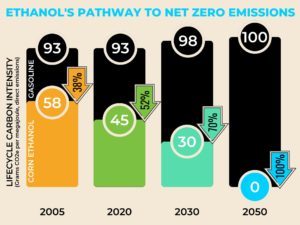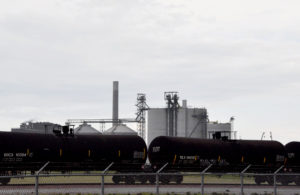 Clean Fuels Alliance America members met in Washington D.C. this week to elect new Governing Board leaders, reflecting the interests of both large and small companies, biodiesel and renewable diesel producers, as well as soybean growers and renderers.
Clean Fuels Alliance America members met in Washington D.C. this week to elect new Governing Board leaders, reflecting the interests of both large and small companies, biodiesel and renewable diesel producers, as well as soybean growers and renderers.
Mike Rath, senior vice president with Darling Ingredients, was appointed Clean Fuels Chair. “This is an exciting time for the clean fuels industry,” said Rath. “Looking back over the last two decades, the industry has made tremendous strides in introducing new fuels to the U.S. market. Our industry currently meets 5% of the country’s need for heavy-duty on-road transportation fuel. And our growth is accelerating to meet new markets.”
Clean Fuels members voted to fill eight board seats for two-year terms:
· Greg Anderson, Nebraska Soybean Board
· Tim Keaveney, HERO BX
· Courtney Lawrenson, Ag Processing Inc.
· Gary Louis, Seaboard Energy LLC
· Tim Ostrem, South Dakota Soybean Checkoff
· Mike Rath, Darling Ingredients Inc.
· Rob Shaffer, ASA
· Paul Teta, Kolmar Americas, Inc.
Continuing to serve on the board for a second year are:
· Danielle Brannan, New Leaf Biofuel
· Kent Engelbrecht, ADM
· Neville Fernandes, Chevron Renewable Energy Group
· Chris Hill, Minnesota Soybean Research & Promotion Council
· Ryan Pederson, North Dakota Soybean Council
· Harry Simpson, Crimson Renewable Energy
· Dave Walton, Iowa Soybean Association
The board appointed Rob Shaffer as Vice-Chair, Gary Louis as Second Vice-Chair, Ryan Pederson as Treasurer, Paul Teta as Secretary, and Kent Engelbrecht as Past Chair. Clean Fuels also extended its appreciation to retired governing board Chair Chad Stone, from Chevron Renewable Energy Group.
“Our members elected Chad just as we launched our vision to build a 6-bilion-gallon U.S. industry by 2030. He led our organization through its rebranding to represent all of the fuels we produce – biodiesel, renewable diesel, and sustainable aviation fuel. And he has left us stronger than ever, as our industry rapidly grows and diversifies to meet demand for better, cleaner fuels. We can’t thank Chad enough for his time, commitment, and advocacy,” said Clean Fuels CEO Donnell Rehagen.












